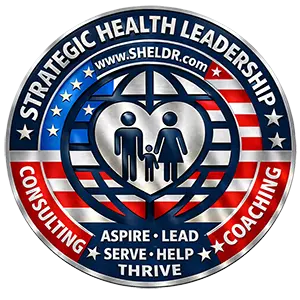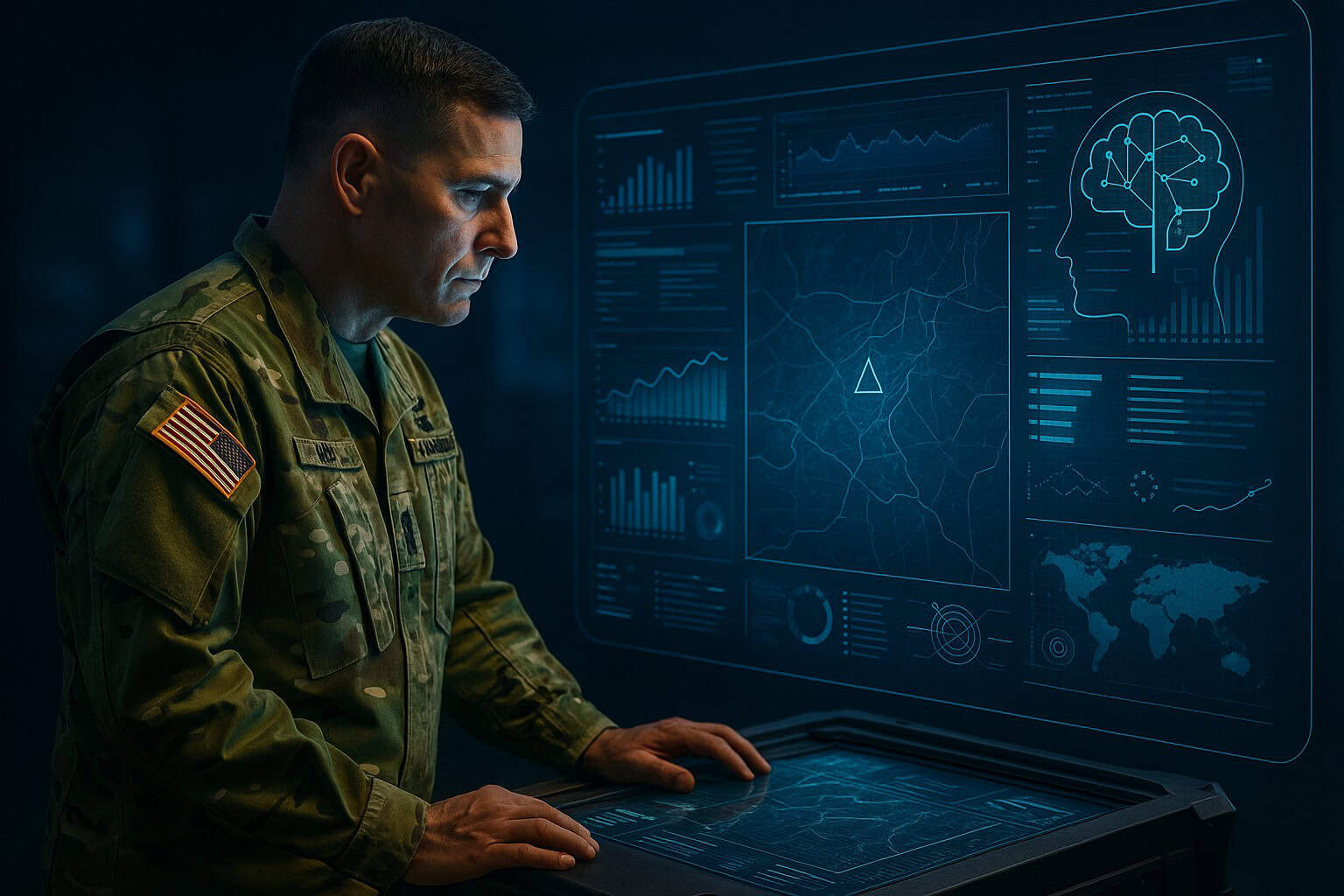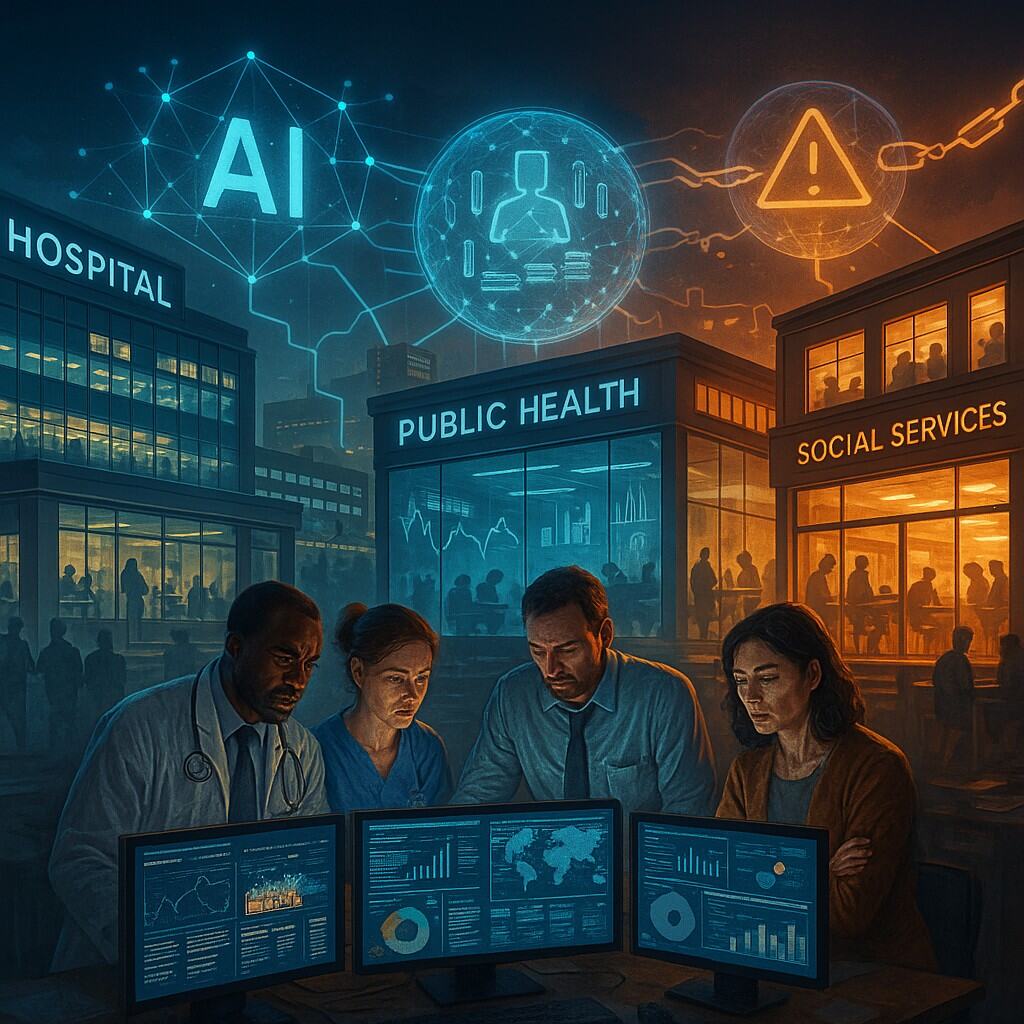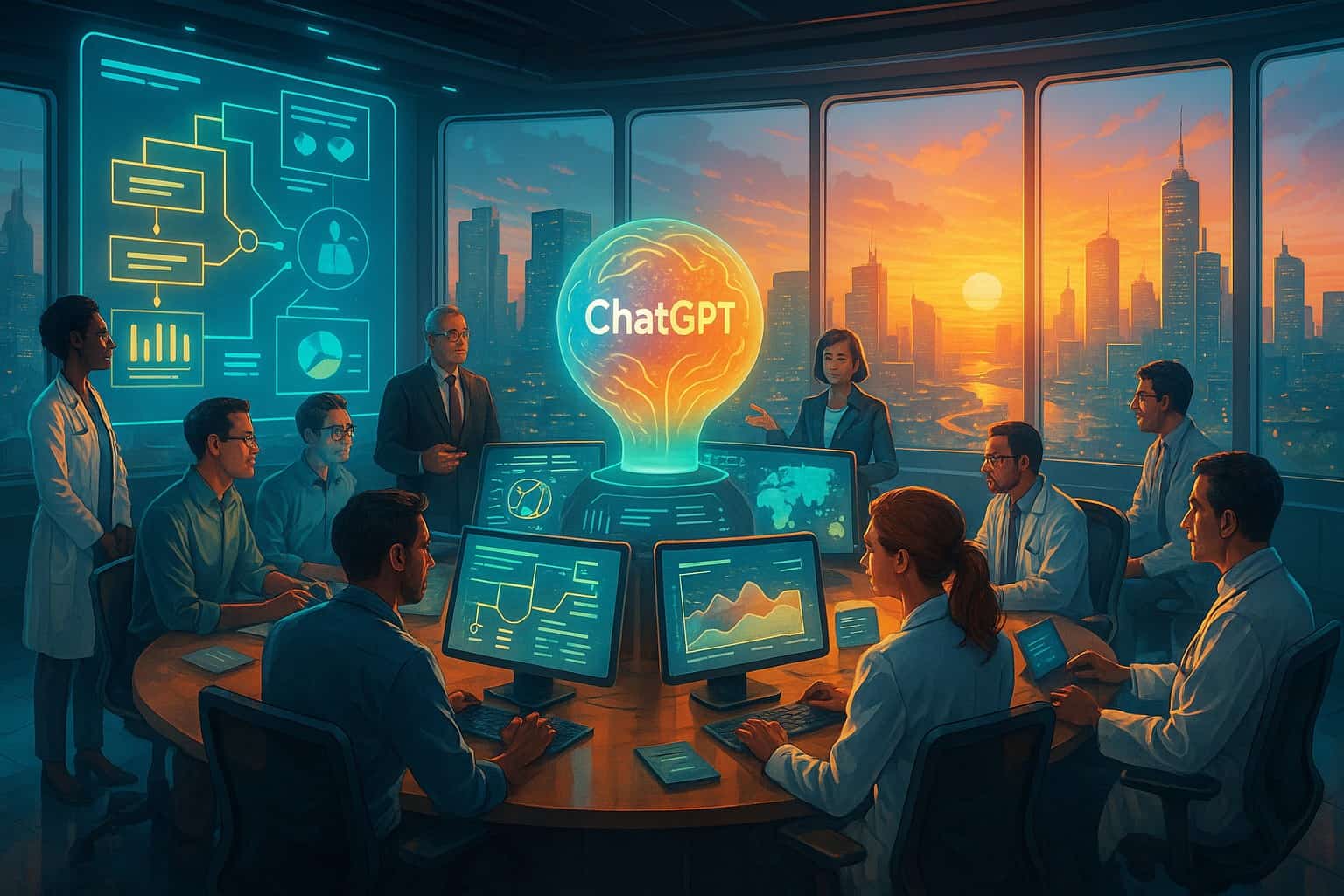Will your leadership skills survive the first AI crisis without trust and grit?
Discover three critical soft skills that define leadership success in MAHANSI’s AI-first world.
Table of Contents
Executive Summary
The Make All Americans Healthier as a National Strategic Imperative (MAHANSI) demands more than dashboards—it requires grit. Strategic health leaders (SHELDR) must lead boldly, think fast, and speak with power. This article reveals three critical soft skills that AI can’t replicate but will test: conversational intelligence, cognitive flexibility, and narrative control. You’ll face real-world chaos, misinformation, and AI-triggered uncertainty. If you can’t lead through that, you’ll lose trust and power. But if you can, you’ll win the future. To learn more, use the links, questions, learning activities, and references.
Introduction: Lead with Grit, Not Just Code
We’re not in cruise control anymore. The national strategy has shifted. Every health and human services (HHS) leader flying high on autopilot is about to get smoked by someone who knows how to lead through chaos with clarity. The Make All Americans Healthier as a National Strategic Imperative (MAHANSI) movement demands more than clinical excellence or data dashboards. It requires nerve, vision, and next-level soft skills — the kind you don’t find in an org chart or algorithm.
A July 2025 Forbes Business Council article made the point clear: in the age of AI, soft skills aren’t “nice to have” — they’re survival gear. The article (Soft Skills: The Most Critical Skills To Teach In The Age Of AI laid out the truth many leaders still dodge: AI is fast, cold, and brilliant. However, it can’t coach a team through fear, read a room during a crisis, or rebuild trust after systems fail. Only humans do that. And only skilled, strategic health leaders (SHELDR) can do it at scale.
In addition, the must-read National Academy of Medicine’s The Learning Health System Series. Artificial Intelligence in Health Care: The Hope, the Hype, the Promise, the Peril examines governance, leadership challenges, and ethical considerations, including the impact of misinformation and erosion of trust. This message is clear: soft skills must not be set aside in the AI era!
Let me lay it out plainly. You can master every AI workflow from claims automation to clinical risk prediction. But if you can’t build trust across fractured teams, deliver bad news without wrecking morale, or inspire action before the system breaks down — you’re a liability, not a leader.
When AI Alerts Hit, Will You Freeze or Fly?
You’re at a regional command center. A cyberattack has disabled access to patient records across multiple safety-net hospitals. Predictive AI identifies a growing number of diabetic patients who are likely to miss insulin refills within 48 hours. Community partners are disorganized. Social media is spiraling. You’ve got two hours to realign the coalition, secure emergency data access, and restore coordination.
The AI gave you the warning — but now you need to lead. Not with spreadsheets. With presence, pressure-tested instincts, and verbal precision.
This is where soft skills become battlefield assets.
What Top Gun Taught Us About Strategic Health Leadership
In Top Gun, Maverick doesn’t survive because he’s the smartest or fastest; instead, it’s because he’s the most reckless. Yet, he survives because he adapts under pressure, trusts his wingmen, and knows exactly when to lead and when to follow. He owns the mission. He reads his teammates. And when things get tight, he never chokes. SHELDRs operating in the MAHANSI era need the same edge.
TEJ Topol’s Book, Deep Medicine: How Artificial Intelligence Can Make Healthcare Human Again is foundational in arguing AI should augment—not replace—human empathy, communication, and trust in clinical leadership. Now more than ever, health leaders must develop three high-impact soft skill competencies, all of which are shaped by the accelerating integration of artificial intelligence. Here’s what Maverick has to say:
Speak Like a Commander in AI Chaos
AI won’t replace human leaders, but it will test their communication limits. In high-pressure HHS environments, being able to convey clarity, direction, and emotional steadiness across multi-sector teams is non-negotiable. You have to translate AI outputs into real-world action — fast, accurately, and without losing your people in the process. That’s more than message delivery. That’s command presence. That’s trust transfer. Maverick doesn’t explain how to fly. He shows you through how he speaks, acts, and reacts.
Flip Fast or Crash: Mental Agility for SHELDRs
Your AI model says hospital readmissions are likely to spike next week in two ZIP codes. Community health workers on the ground say something’s off — families aren’t showing up for services. What do you believe? Where do you act? Cognitive flexibility refers to the ability to switch between mental models without becoming stuck. The best SHELDRs utilize AI to challenge their assumptions, rather than confirm them. Like flying into a flat spin, you don’t get to panic. You recover or you crash.
Control the Story or Surrender the Mission
You’ve seen the headlines. Deepfake videos of fake hospital shutdowns. AI-generated misinformation targeting immigrant communities. When trust collapses, health leaders can’t retreat behind press releases or legal statements. They must step into the story, own the truth, and lead publicly — fast and unapologetically. The public doesn’t just need facts. They need leaders who can make meaning under pressure. In Top Gun: Maverick, he steps in when the mission seems impossible and says what everyone needs to hear — with conviction, not spin.
Execute Boldly or Watch MAHANSI Slip Away
This isn’t a drill. Chronic illness, loneliness, addiction, homelessness, and family instability are ripping through communities at a cost we can no longer ignore. MAHANSI reframes this moment: stop reacting to illness and start organizing for health, wealth, and resilience. But that vision only becomes reality when leaders step up and execute differently.
AI gives us unprecedented tools to see, predict, and optimize. But soft-skilled SHELDRs are the only ones who can organize, inspire, and guide. That requires humility, rigor, and constant development — not just in systems design, but in self-awareness, relational leadership, and storytelling under pressure.
If you want to lead in this MAHANSI era, build your muscle in three areas now:
- Lead AI-human teams with clarity and presence.
- Stay mentally agile when AI surprises you or contradicts your instincts.
- Own the story when the headlines go sideways — because they will.
Stop Waiting. Lead the AI-Driven Health Revolution
AI is fast. But trust is still the fuel. And no AI model will build it for you. That takes human grit, Maverick-like instincts, and the courage to fly through turbulence with purpose. MAHANSI is your mission. The cockpit is open—time to take the stick.
This Is Your Leadership Dogfight—Will You Win or Burn Out?”
AI won’t wait for you to catch up. In the MAHANSI era, soft skills aren’t nice-to-have—they’re essential for flight. This chapter lays out the three strategic soft skills you must master if you want to stay airborne: commanding conversations under pressure, thinking flexibly when AI changes the map, and owning the narrative when misinformation strikes.
You’re not managing dashboards anymore. You’re leading through turbulence with lives on the line. If your team loses trust, your systems won’t matter. If your story fails, facts won’t save you. If your instincts collapse, AI will lead—and you’ll follow.
Strategic health leaders must step up, not step back. Own the mission. Build trust fast. And write your flight plan before someone else programs it for you.
Consider the discussion questions and learning activities, then check out these articles at the Strategic Health Leadership (SHELDR) website:
- Elite AI Leadership: 7 Irreplaceable Non-AI Soft Skills in the Health And Human Services Workplace
- Seize 3 AI Core Skills to Dominate in Health Leadership
- Unleash the Power of AI in Healthcare and Human Services: 8 Must-Have Skills for Healthcare Leaders in 2024 (and Why You Should Care!)
Deep Dive Discussion Questions
- What specific soft skill gaps in your leadership team would AI exploit during a public crisis?
- How do you train teams to switch cognitive models when AI and field data conflict?
- What’s your protocol for narrative control when deepfakes threaten trust in your organization?
- In what ways can conversational intelligence shape the success of AI-human health coalitions?
- Which soft skill will be most critical when deploying AI for public health surveillance or response?
Professional Development & Learning Activities
- Command Presence Lab – Simulate a regional health emergency and deliver a 2-minute AI-briefing under pressure.
- Crisis Messaging Battle Drill – Write and deliver a real-time comms response to AI-triggered misinformation targeting your system.
- Mental Flip Chart – Map 3 real-world situations where cognitive rigidity derailed decision-making; redesign the thought process.
References
- US Department of Health and Human Services (HHS): Strategic Plan for the Use of Artificial Intelligence in Health, Human Services, and Public Health. Focuses on AI-enabled population health strategies and the critical human governance needed to navigate complexity and equity concerns.
- IBM Institute for Business Value: Leadership in the Age of AI: Unleashing Human Potential as AI Becomes Ubiquitous. Explains how effective leadership relies on agility, emotional intelligence, and adaptability in AI-enabled systems across various sectors.
- American Medical Association (AMA): Augmented Intelligence in Health Care in Medicine. Outlines principles for AI adoption, with a strong emphasis on the importance of human judgment, transparency, and effective communication in leadership.
- Centers for Medicare & Medicaid Services (CMS). Accountable Health Communities Model Evaluation Report. Evaluates the role of leadership, cross-sector collaboration, and data integration in addressing health-related social needs, tied to MAHANSI goals.
- Centers for Disease Control and Prevention (CDC). Public Health Workforce Interests and Needs Survey (PH WINS). Captures skill gaps in public health leadership, especially in communication, decision-making, and use of data tools, including AI.
- Agency for Healthcare Research and Quality (AHRQ). Artificial Intelligence in Health Care: The Hope and the Hype. Warns that AI will amplify gaps in leadership soft skills unless explicitly addressed in workforce planning and implementation.
Video Sources
Soft Skills: What AI Can’t Replace Still Matters Most …
Leading with Trust in AI to Transform Healthcare 7.10.2025
Enhancing Soft Skills with AI: Bridging Technology & Human …
Hashtags
#AILeadershipSkills
#SHELDR
#MAHANSIMovement
#HealthCrisisCommand
#StrategicSoftSkills
#LeadWithGrit




